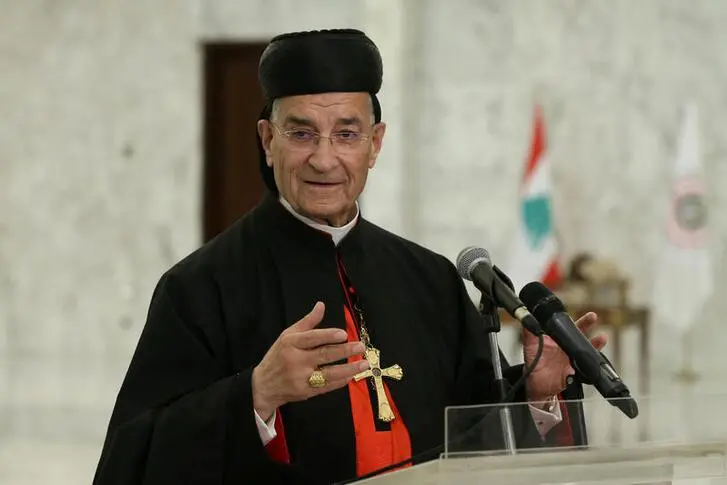PHOTO
BEIRUT: In an exclusive interview with Arab News on Wednesday, the head of Lebanon’s Maronite church, Bechara Al-Rai, called for all of the many political factions in the country — which has just marked its centenary — to support his call to adopt ‘active neutrality,’ describing it as “part of the Lebanese identity.”
“Lebanon has (historically) been neutral,” the patriarch said. “But since 1975, we have lost our neutrality — first when the Cairo Agreement allowed the Palestinians to carry out military operations against Israel from Lebanese territory, then with the civil war, which led to the emergence of different militias. So, active neutrality is a return to our roots, to our own identity.”
With the exception of Hezbollah, which he said has not expressed a position yet, Al-Rai claimed that no party in Lebanon opposes neutrality, but that “probably a few take advantage of the current situation and are just sitting on the fence.”
Al-Rai disagrees with Hezbollah’s claim that neutrality would encourage Israeli aggression, or mean that Lebanon could not defend itself.
“Neutrality comprises three inseparable and complementary elements,” he said. The first is that Lebanon, because of its size, “has no interest in being part of the conflicts and wars in the region.” The second is that the country’s “mission” is to be a place “where all nations can come together and get along.” And the third that a Lebanon not “fragmented into several republics” could establish “a strong state, with an army and institutions that can exercise its sovereignty within its territory … and defend itself from any aggression.”
He added: “Hezbollah has its own vested interests that are not necessarily aligned with those of Lebanon.”
The need for unity is urgent, Al-Rai continued. “Today, we are committing suicide. We cannot sacrifice Lebanon for the sake of a person or party, whether it is Hezbollah or others.”
A policy of active neutrality would allow Lebanon to build on the good relations it already has with many countries, Al-Rai believes, but also to forge new international relations.
While he welcomed the recent decisions by the UAE and Bahrain to normalize relations with Israel, he stressed: “I am not saying that (Lebanon) should normalize relations with Israel today,” but added that the roots of the recent deals could be found in an initiative launched at the Arab League Summit in Beirut in 2002.
Al-Rai also took the opportunity to thank the many countries to have provided support to Lebanon since the devastating explosion in Beirut’s port on August 4. “This shows that Lebanon, this small country, is well-cherished.”
But, he added, “Lebanon must live up to this vision of the international and Arab community. It needs to form a government, and its politicians must no longer care about their personal interests, but must put those of Lebanon first.”
He said Lebanon’s politicians should feel “ashamed” that French President Emmanuel Macron “rushed to Lebanon in the aftermath of the double explosion, while no Lebanese politician dared to go to the bedside of the people.”
“Our politicians are now declaring themselves innocent of their responsibilities,” Al-Rai said. “It is as if it was the duty of France or any state to come and help Lebanon ward off the negligence of its political leaders.”
More must be done, Al-Rai said, to ensure that the Lebanese people are able not just to survive in their country, but thrive — and to dissuade so many Lebanese from leaving the country.
“Words are not enough. We use words, principles, patriotism, but this is not enough. They need to eat, to work, to be able to build their future and achieve their dreams. The responsibility falls on politicians. Economic conditions in the country need to be improved. The Lebanese must be able to live with dignity and find a job. We must also ensure their safety. It is not okay to have all these guns all over the place in people’s hands, shooting and killing for whatever reason. Life has value,” he said.
“Therefore, we need a neutral state, a strong state imposing its sovereignty throughout the country, ensuring the security of all its citizens, providing them a normal economic and social life,” he continued. “This is the neutral state that we are advocating — the state as it was before it tumbled.”
Copyright: Arab News © 2020 All rights reserved. Provided by SyndiGate Media Inc. (Syndigate.info).





















